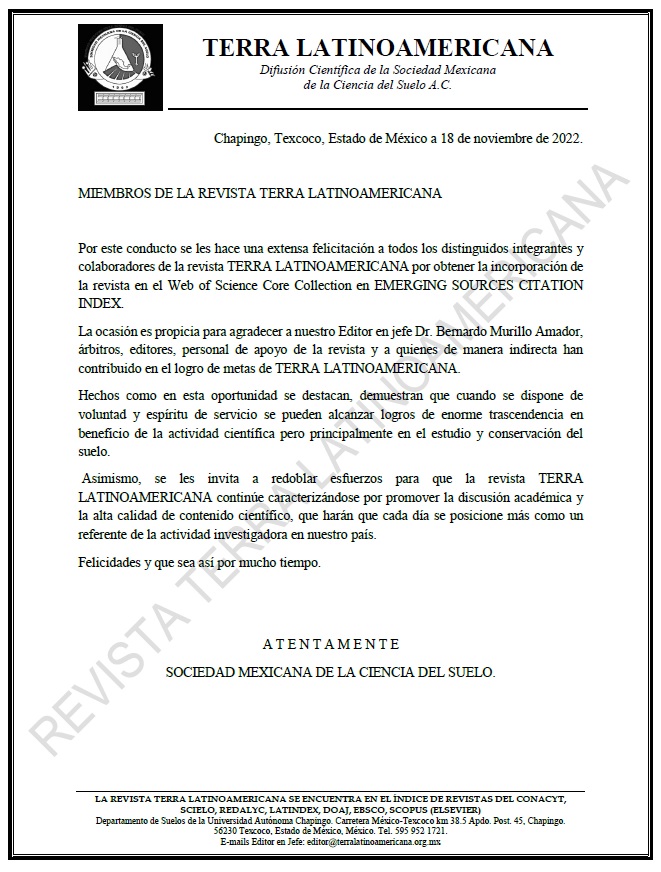Effect of imbibition treatments on the germination of Stenocereus zopilotensis (Cactaceae) native from Guerrero, Mexico
DOI:
https://doi.org/10.28940/terra.v39i0.827Keywords:
dormancy, latency, soaking, stimulationAbstract
The prickly pear cactus “tuna pelona” (Stenocereus zopilotensis), is an endemic cactus species from the state of Guerrero, Mexico, it develops in semi-arid areas and has great ecological importance as it houses and forms part of the diet of multiple species in its niche. There is a constant threat to natural populations of this species due to the overexploitation of seedling collections in the f ield by unregulated trade. In order to design an alternative for the conservation management of these species, the objective of the work was to evaluate treatments for the imbibition of “hairless tuna” seeds to promote germination and the successful establishment of seedlings with economic technologies for the farmers of the area. Fruits of "tuna pelona" (S. zopilotensis) were collected, near the community of Xalitla, municipality of Tepecoacuilco de Trujano, Guerrero; the seeds were stored for 70 and 273 days after collection (dac) at room temperature in order to maintain adequate conditions for the conservation of viability until reaching dormancy. In the stored seeds, the effect of soaking treatments was evaluated: 0, 6, 12, 24 and 12 hours in water plus another treatment that consisted of immersion in a plant-based hormonal stimulant. The germination percentage per treatment was evaluated, it was found that the control treatment (zero hours in water) of seeds stored at 70 dac only obtained 2.4% of germination. The treatment of soaking in water and in the hormonal stimulant both for 6 h presented the highest germination values with 48.6 and 44.4% respectively when using seeds of 273 dac at 14 days after the application of the treatments. These results will allow the massive production of seedlings of the species for reforestation and regional marketing purposes.
Downloads
Publication Facts
Reviewer profiles N/A
Author statements
- Academic society
- Terra Latinoamericana
- Publisher
- Mexican Society of Soil Science, C.A.

















